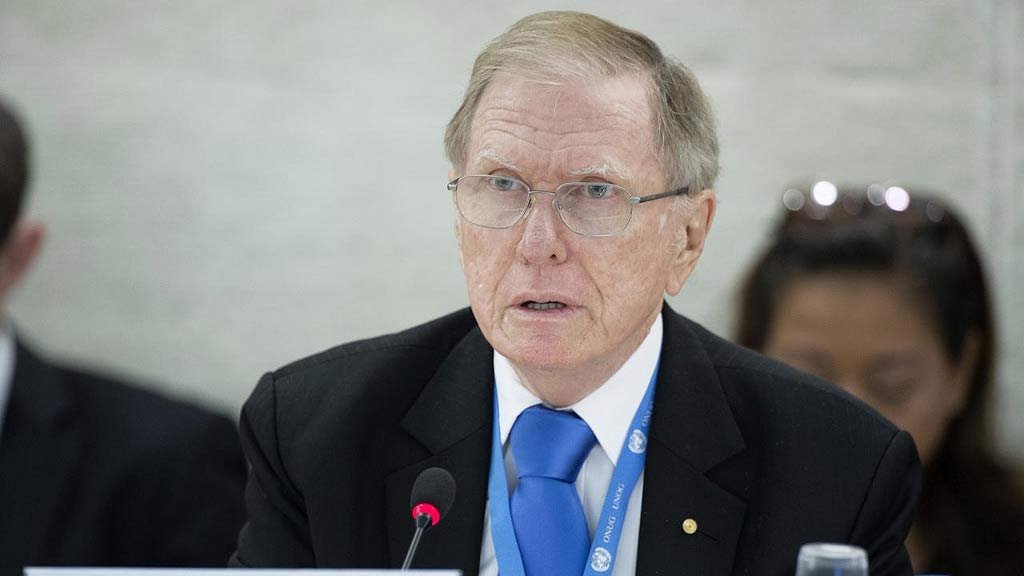By Brian Lanciault
Impunity Watch Reporter, Asia
PYONGYANG, North Korea– United Nations experts investigating human rights conditions in North Korea announced Tuesday that the “shocking” evidence they had collected from defectors and others suggested “large-scale” patterns of abuse. They called for an immediate international response.

The Human Rights Council initiated the investigation in an attempt to bring greater attention to allegations of abuse at the North’s infamous gulags. Tales of abuse have been spilling out for years as more people have escaped the brutal police state. Until recently, world leaders, including the United States, had focused on attempts to dismantle the North’s nuclear weapons program, paying little mind to the alleged abuse.
The chairman of the three-member Commission of Inquiry, Michael Donald Kirby, told reporters that the testimony he heard regarding abuses evoked reactions similar to the discovery of concentration camps after World War II.
He cited the statements of a former prisoner who reported seeing another woman forced to drown her baby in a bucket, and the account of one man who said he was forced to collect and burn the bodies of prisoners who died of starvation. Experts say the number of prisoners in these camps has declined in recent years to an estimated 120,000 or fewer from a possible high of 200,000; however that might be partly attributable to high mortality rates in the camps.
“The great value” of the report, said Eileen Chamberlain Donahoe, a United States ambassador to the Human Rights Council, is that “it has begun to shed light on the horrifying realities of life in North Korea and raise international awareness of the ongoing tragedy and barbaric conditions there.” She also said the findings demonstrated a “small but significant crack” in the North Korea’s “information blockade.”
The findings of the three-member Commission were part of an interim report to the council; the final report in March is expected to be presented to the United Nations General Assembly.
It is unclear yet what actions the United Nations might take, if any. A referral to the International Criminal Court for human rights abuses would need approval from the Security Council, which includes North Korea’s greatest ally, China.
Although China did not oppose the investigation, a senior Chinese diplomat in criticized the interim findings. “Politicized accusations and pressures are not helpful to improving human rights in any country,” Chen Chuandong said, according to Reuters. “On the contrary, they will only provoke confrontation and undermine the foundation and atmosphere for international human rights cooperation.”
Mr. Kirby said the panel had submitted multiple requests seeking cooperation and access to North Korea, including a letter to the country’s leader, Kim Jong-un. The Pyongyang regime responded that it “totally and categorically rejects the Commission of Inquiry.”
A senior North Korean diplomat in Geneva, Kim Yong-ho, said Tuesday that the evidence suggested by the panel had been “fabricated and invented” by North Korea’ enemies, and dismissed the commission as “a hotbed of confrontation and distrust.”
Mr. Kirby said that he had invited North Korea to provide hard evidence that refuted any of the testimony received, but that none was forthcoming.
For more information, please see:
New York Times — U.N. Panel Urges International Action on North Korean Human Rights Abuses — 17 September 2013
Rappler — UN probe exposes shocking North Korea rights abuses — 18 September 2013
Reuters — North Korea rejects U.N. rights report political — 17 September 2013
ABC News — Michael Kirby delivers scathing assessment of North Korea human rights abuses to UN — 17 September 2013
BBC — North Korea: UN rights probe shows ‘unspeakable atrocities’ –17 September 2013